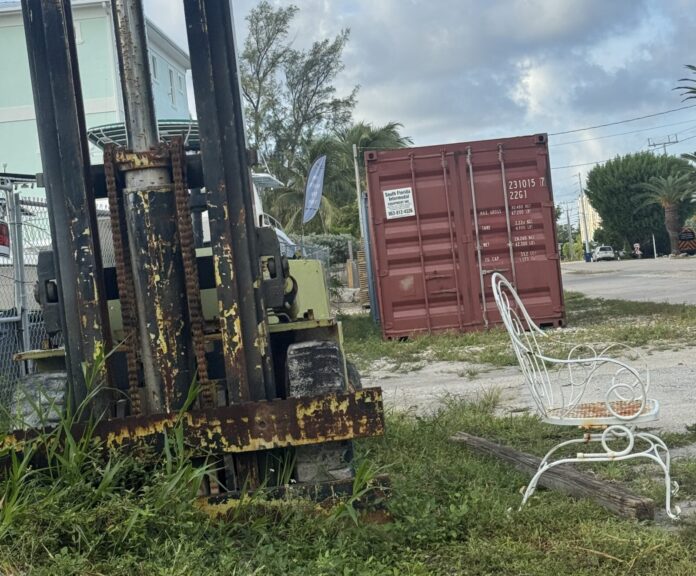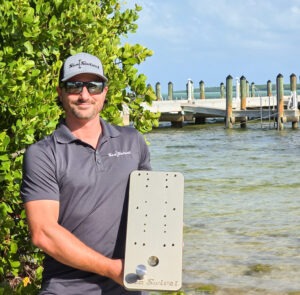
Marathon officials set out to demystify the often-perplexing world of the city’s land development regulations and code in a workshop session on Aug. 26.
Planning Director Brian Shea led a comprehensive discussion of the array of documents governing the structure of the city, use of properties within its boundaries and day-to-day regulations. He began by differentiating the often-confused terms of conditional use permits and variance requests for properties, separated by whether or not a proposed project technically meets the city’s code requirements.
“A conditional use is an application that could be permitted as a use within a district, but the question is whether or not that use fits within that area,” he said. The project itself must comply with the city’s code, but review of the conditional use includes “look(ing) at what’s around it neighborhood-wise.”
A variance, meanwhile, requires special permission if a project doesn’t meet a requirement of the city’s code – a procedure commonly needed to install docks longer than 100 feet in shallow nearshore areas like Grassy Key, he said.
Shea also outlined differences in types of building rights, the linchpin of continued development throughout the city. Building rights for residential properties are obtained through either the Building Permit Allocation System (BPAS), which awards a limited amount of new building rights each year to developable properties where those rights did not already exist, or by using a Transferable Building Right (TBR) to move existing permission to build from one property to another.
Density, or the number of building rights allowed on a property based on its size and zoning, may be transferred from one site to another by using Transferable Development Rights. These rights may only be transferred to receiving sites that allow a higher density than the sending site, and the increase in density may not exceed 20%, Shea said. Sites used to develop affordable housing within the city, he added, receive a bonus in allowed density to incentivize construction.
In citizens’ comment, Coco Plum resident Mike Millard raised concern with e-bikes operating at excessive speeds along Coco Plum Drive, along with issues of parking and equipment in the right of way, including two recently-placed storage containers.
“People have containers, rotten boats and lifts that have been sitting there for years,” he said, also taking exception to vehicles like tow trucks parked along the road.
Council members and City Manager George Garrett admitted that some debris could be cleared, but said the Coco Plum area represents one of Marathon’s few remaining working waterfronts, with equipment common to industrial areas.
“I’m not saying it’s not an eyesore … but just because there’s junk and it looks bad, it’s not necessarily trash to them,” said councilman Kenny Matlock.
Shea clarified that registered vehicles are allowed to be parked in the right-of-way, a provision Matlock said he unsuccessfully attempted to restrict to the space in front of an owner’s own property. Garrett promised removal of the storage containers referenced by Millard.
Discussion shifted to enforcement by the city’s code department. Mayor Lynn Landry and Garrett reminded the room that with the exception of life safety issues or egregious violations, the department is primarily complaint-driven and restricted to items visible to city staff without trespassing on private property.
Anonymous complaints are not permitted, but Garrett and several council members said they were willing to personally submit or address concerns raised to them by residents who feared retribution from their neighbors. City Attorney Steve Williams added that in cases where a property owner invites city staff onto their property for inspections during a building permit or vacation rental license application, violations observed by staff could also cause a complaint.
“We try to keep it to life safety, like you have a set of stairs that were never inspected or you have a whole area that’s been electrified or plumbed that no one’s ever seen or inspected,” he said. “(But) we will take the initiative in those situations and institute the case ourselves.”
Vice Mayor Jeff Smith asked Shea and Williams to provide an overview of the city’s requirements for vacation rentals, reiterating that state preemption prevents Marathon from imposing more stringent regulations and that attempts to change the ordinance could result in losing existing restrictions altogether.
Licensed properties are required to have adequate parking for the number of guests and must maintain a seven-night minimum rental. Properties must pass a vacation rental fire inspection, while owners or agents must attend a vacation rental training session outlining the finer points of the city’s ordinance.
Rentals are governed by a “three strikes rule,” in which three violations of the city’s vacation rental ordinance in one year will result in the property’s license being revoked.























